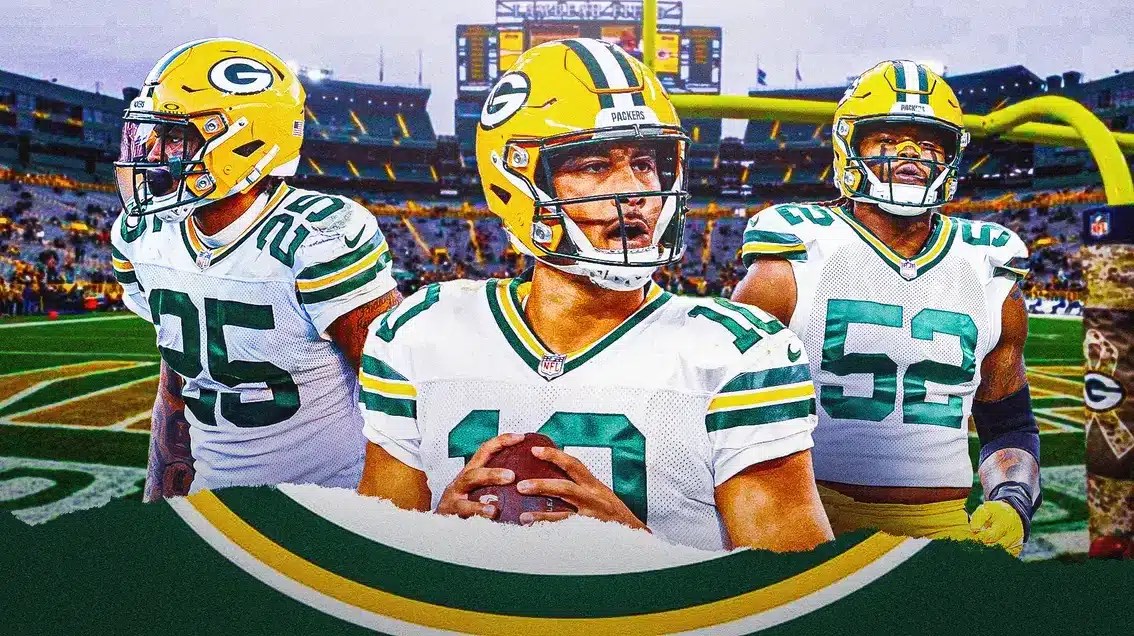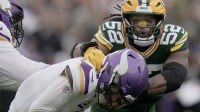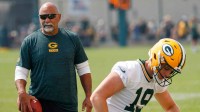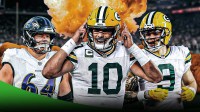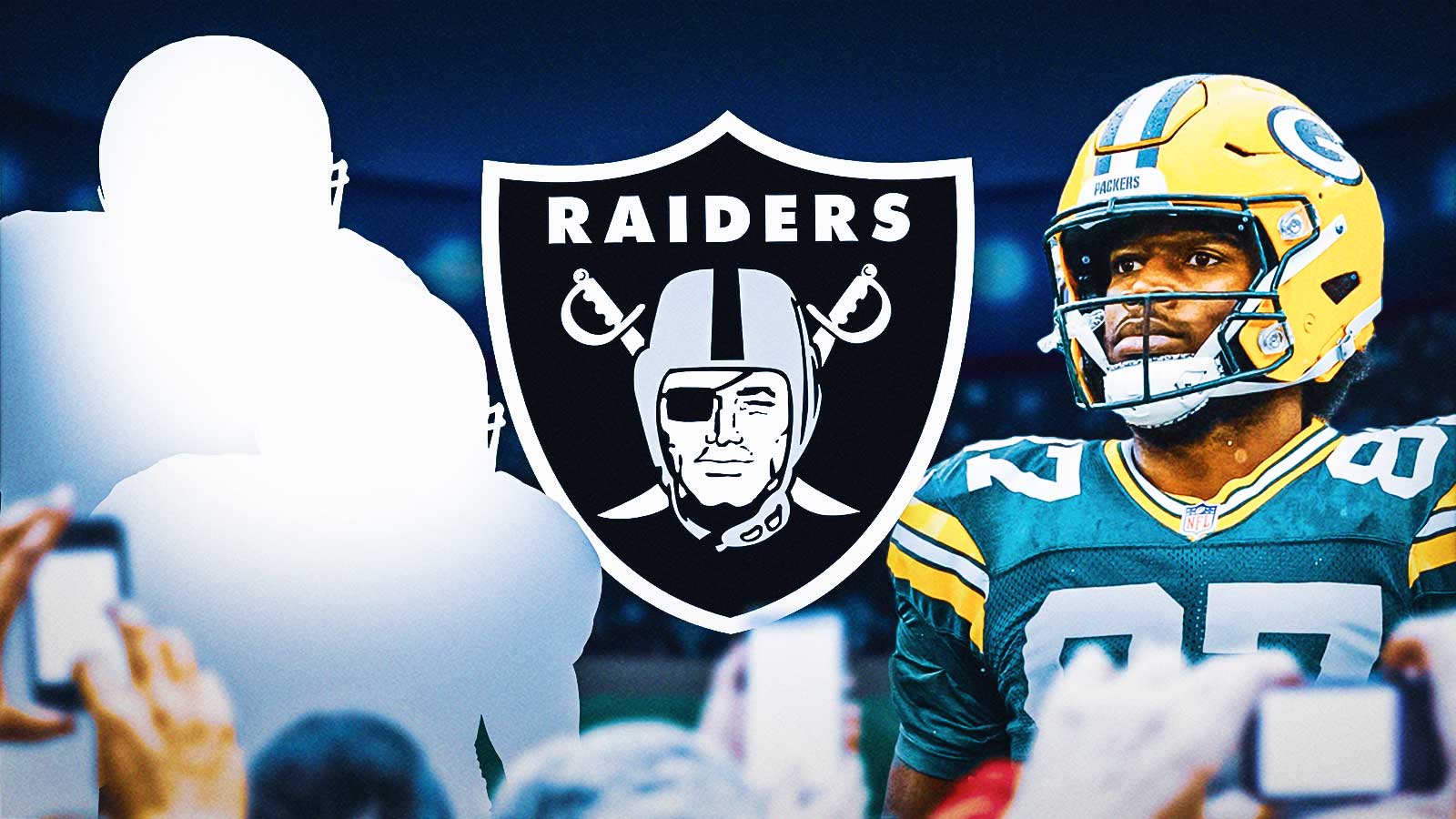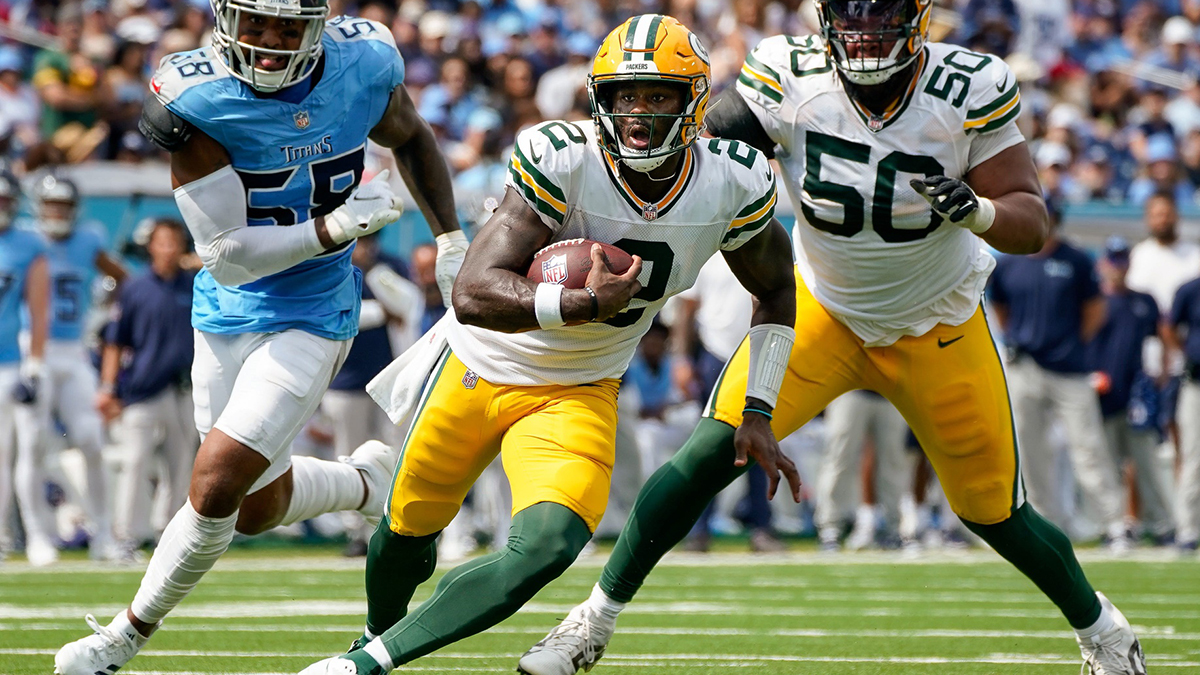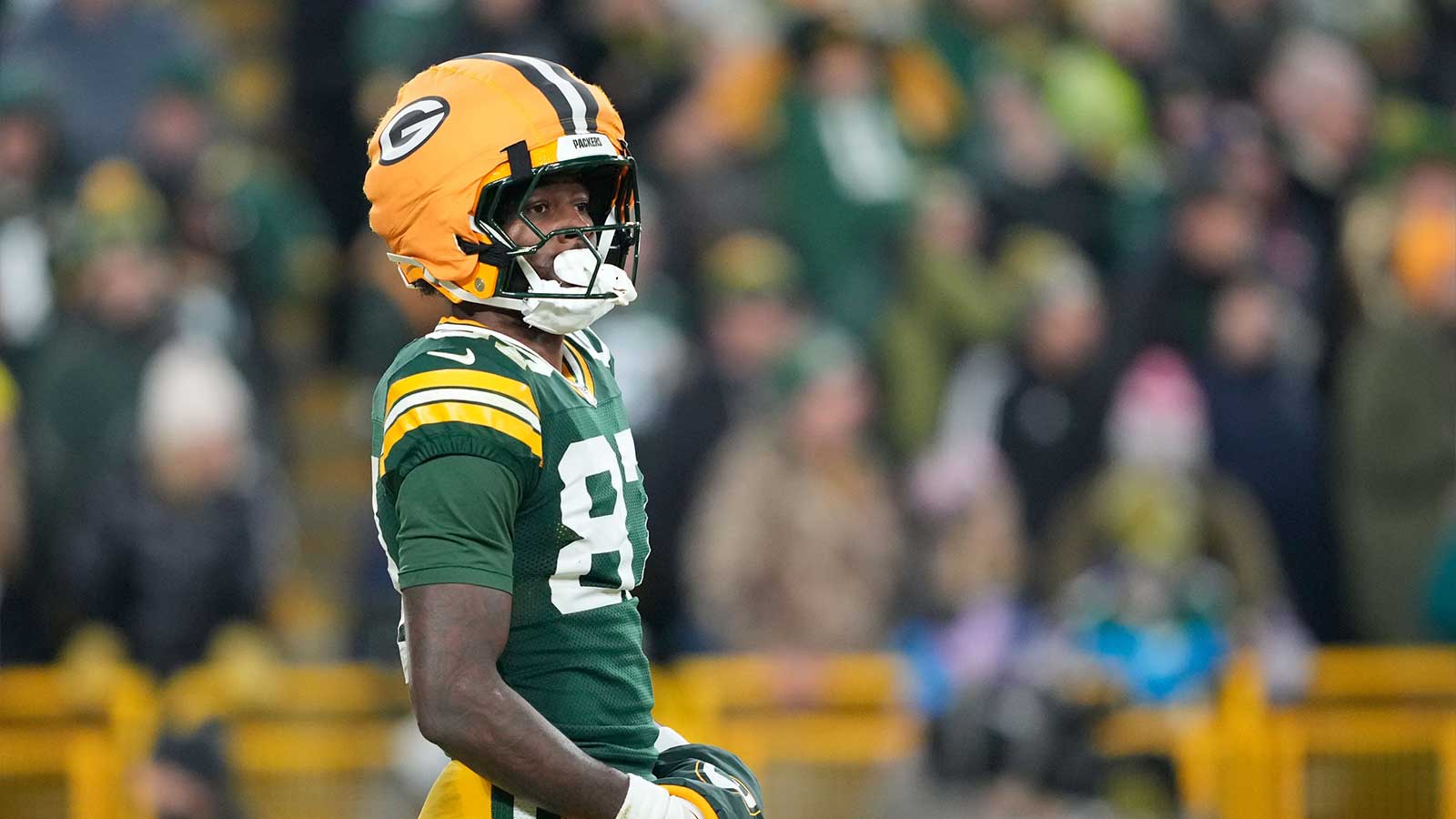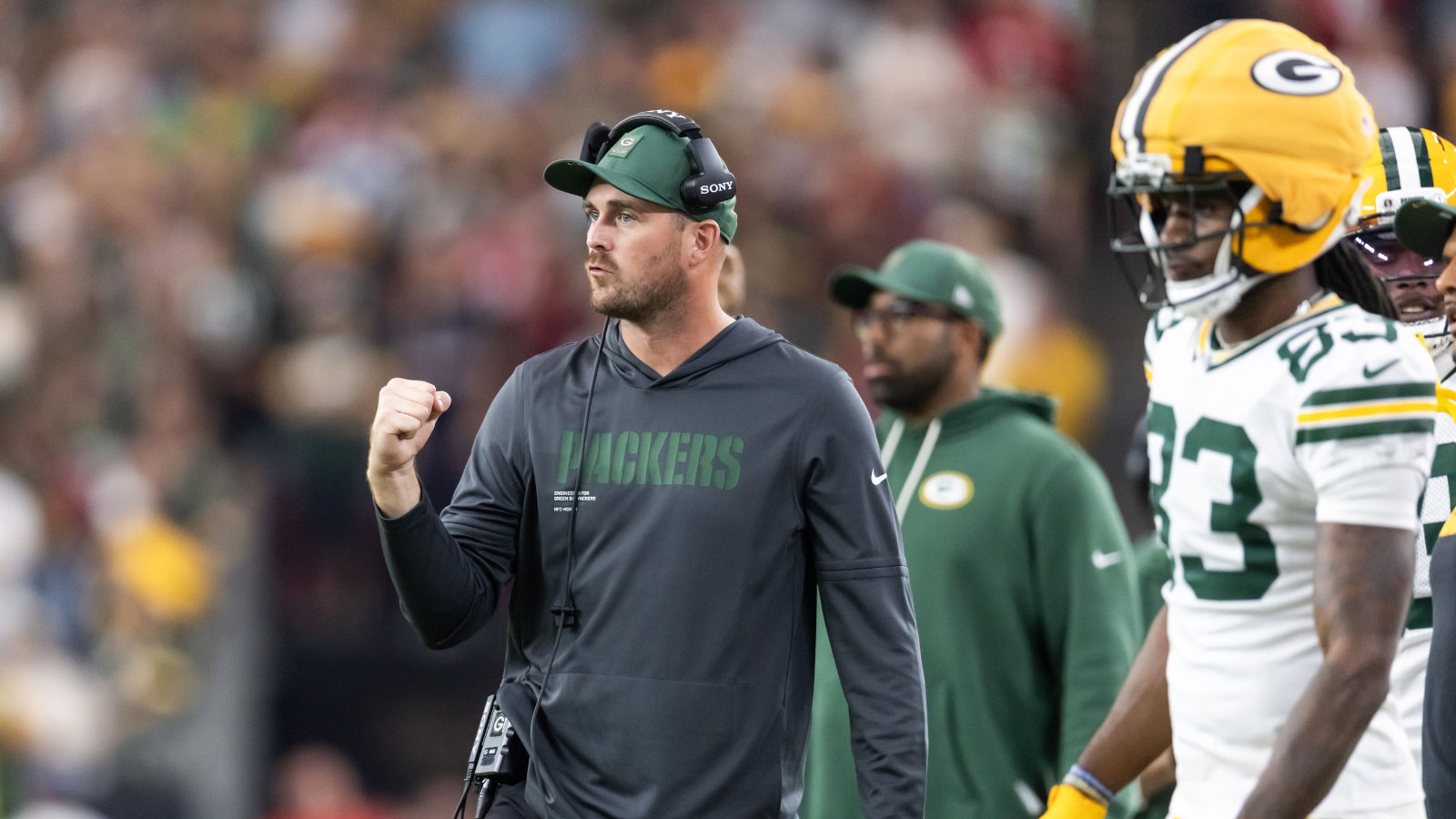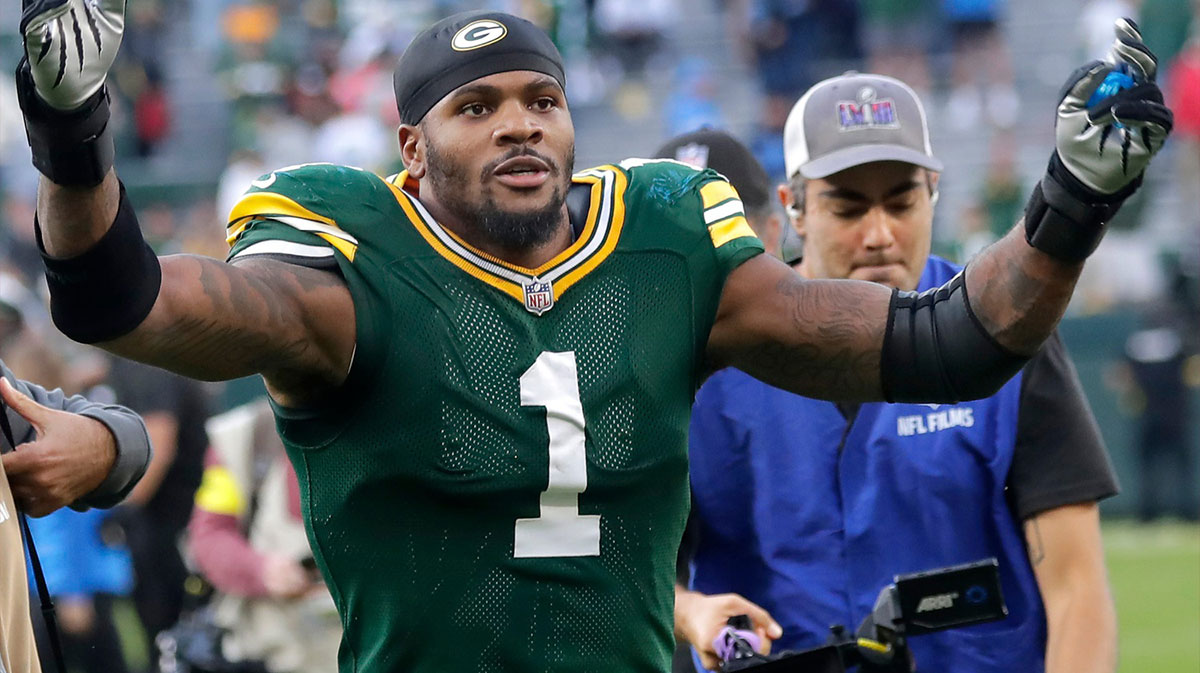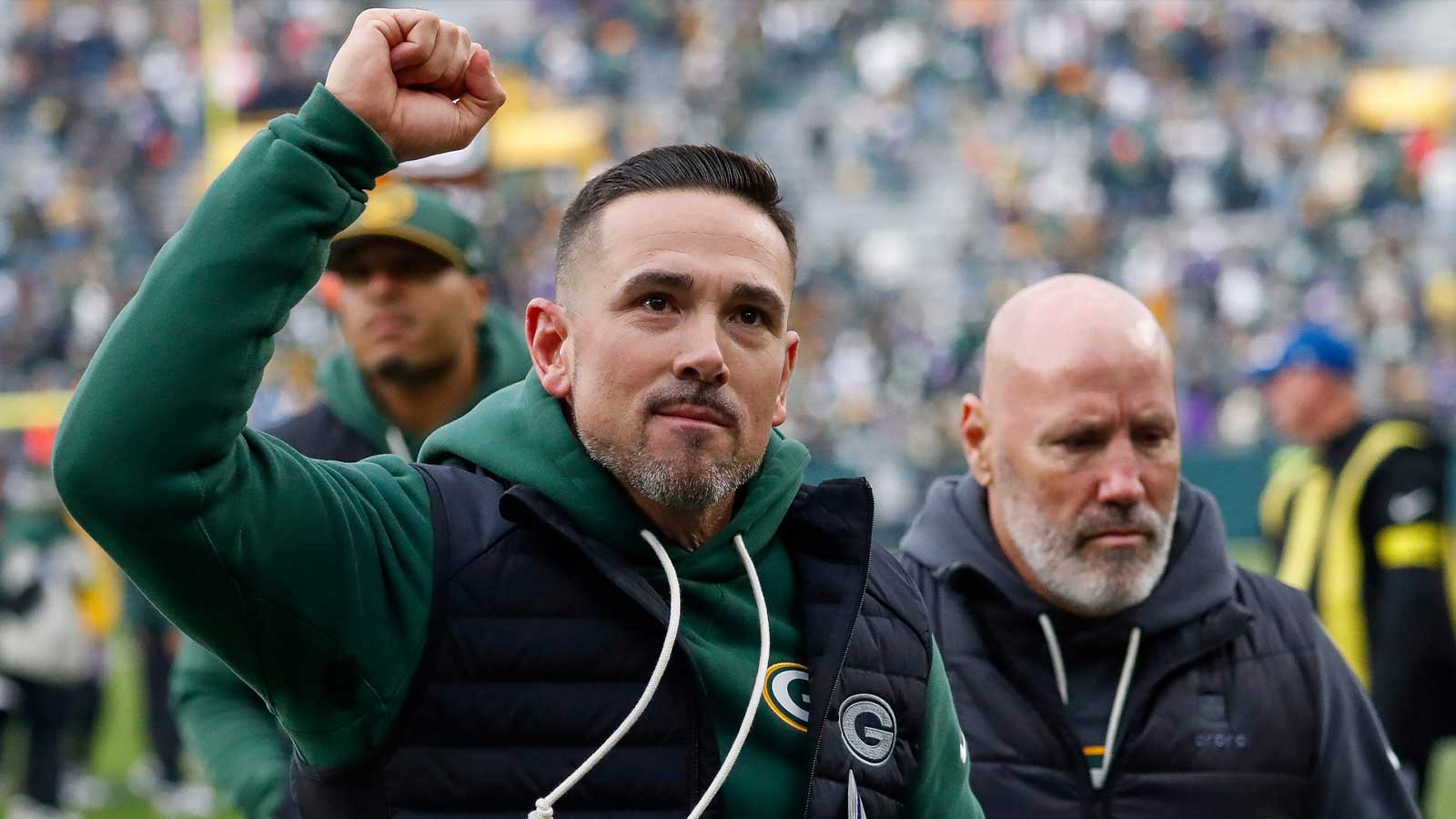The Green Bay Packers got shocked on the road when they fell to the New York Giants 24-22 on Monday Night Football. After coming into the game on a three-game winning streak, the Packers were hot and looking to solidify their playoff hopes. Instead, they lost to the now 5-8 Giants and are on the verge of losing the 7th seed if they lose again.
During the game, the Packers started off with a 10-7 halftime lead. However, some miscues and turnovers allowed the Giants to earn a 21-13 lead heading into the fourth quarter. The Packers took back the game with a 22-21 lead, but were unable to prevent New York from driving down the field to kick a game-winning field goal.
So what exactly happened? How did the Packers blow what many thought would be an easy win for them? For one, injuries hurt the Packers. The absence of wide receiver Christian Watson clearly affected their offense since he adds an element of speed and a deep threat. During their win streak, Watson had at least a touchdown in each game.
Still, this isn't enough to explain why the Packers couldn't win a close game. Let's take a look at three of the other factors that cost the Packers a crucial conference game.
Packers Defensive Front
The Packers defensive front was unable to control the line of scrimmage, which turned out to be a major factor in the Giants getting the win. The Giants offensive line won the battle on the day, paving the way for the team to rush for 209 total yards. Lead back Saquon Barkley controlled the rushing attack by going for 86 yards and two touchdowns on 20 carries. Tommy Devito also factored into the run game, adding 71 yards on 10 carries while Wan'Dale Robinson had 36 yards on two carries. The Packers run defense continues to be one of their weakest links, ranking second-last in the league by giving up 141.8 yards per game. Green Bay has now given up at least 140 yards rushing in each of their past five games.
On top of the poor run defense, the defensive front was also unable to get to the quarterback. The Packers got 0 sacks, compared to when they had eight during their recent three-game win streak. Creating that pressure previously led to big plays for the Packers, including a sack fumble against the Lions. Without that pressure, the Packers did not get those stops while Tommy Devito operated the Giants offense comfortably.
Punt Returner Keisean Nixon
One of the biggest mishaps for the Packers was Keisean Nixon's muffed punt. Early in the third quarter, Nixon initially muffed a punt, but then recovered it. However, he decided to pick the ball up and try running with it, causing him to fumble again. For any returner, the number one job is to catch and secure the ball, which Nixon failed and it cost his team. The Giants recovered the ball and scored a touchdown.
This kind of play had a critical effect on the outcome of the game. The muff ultimately led to that touchdown, giving the Giants a 14-10 lead over the Packers, who would have gotten the ball had Nixon not fumbled. Losing that possession also cost Green Bay another potential scoring opportunity. This muff wasn't the only reason they lost, but in a tight contest it was clearly a difference since the Packers could not overcome the mistake.
Packers Red Zone Offense
A key are the Packers offense struggled to stay consistent was in the red zone. Their first red zone strong went to plan, with wide receiver Jayden Reed running for a touchdown. The next time they got into scoring position was at the end of the first half. They only had about 50 seconds with one time out, but were unable to progress. Jordan Love's pass on 3rd-and-four was tipped at the line of scrimmage, forcing the Packers to settle for the field goal attempt.
Green Bay went back to the red zone when the Giants muffed a punt of their own. The big difference? The Packers only got a field goal from the turnover, not a touchdown. During their next red zone trip, Love got sacked for 10 yards, making the field goal attempt 45 yards instead of 35 yards. Packers kicker Anders Carlson missed the kick, costing the Packers what could have been enough points for a win. Their final red zone blunder was their inability to score a two-point conversion after their touchdown. Had they scored, they likely would have forced overtime and had another opportunity to win. Overall, all these red zone blunders left a lot of points off the board for the Packers.

